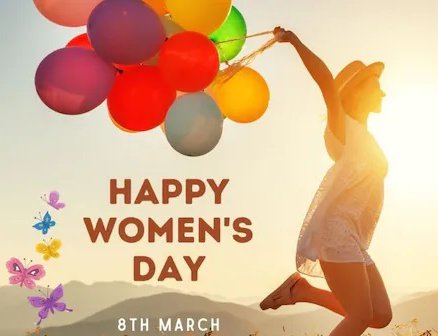
Gender bias contributes to disparities between women and men caused by differential treatment based on a person’s real or perceived gender identity or gender expression, and not based on their capabilities.
Biases are developed early in life, largely influenced by our social, cultural, and political contexts. influence our actions or inactions. As a result, in a patriarchal value system, it becomes difficult for women and girls to advance in the workplace, development, and opportunities.
The International Women’s Day (IWD) 2022 has chosen the “Break the Bias’ campaign theme: A world free of bias, stereotypes, and discrimination. A world that's diverse, equitable, and inclusive. A world where difference is valued and celebrated.
As the COVID-19 pandemic continues, during self or home quarantine, domestic violence has significantly grown with multiple impacts on women’s wellbeing, their mental and physical health, and their ability to participate and lead in the recovery of society. According to a UN report, countries have experienced an average 30% increase in calls to domestic violence helplines since the start of the pandemic.
Girls are at risk of early or forced marriage due to an increasing number of children falling into poverty. UNFPA estimates indicate that the COVID-19 will disrupt efforts to end child marriage, potentially resulting in an additional 13 million child marriages taking place between 2020 and 2030 that could otherwise have been averted.
Loss of income, harmful social norms or traditional practices, lack of health services (including reproductive health), and lack of safe shelter for GBV survivors are among some of the top reported GBV risks. However, the magnitude of violence against women and girls indicates that GBV is not just an isolated incidence but created by unequal power relationsbetween women and men, and rigid gender roles, norms, and hierarchies. Further, there are multiple inequalities between men and women based on intersecting identities such as caste, ethnicity, race, (dis)ability, age, sexual orientation, and civil status.
Nepal has made strong commitments to advancing gender equality and eliminating all forms ofdiscrimination, but there is still a long way to go before it attains gender equality. Women and girls face significant discrimination with continuing social and economic exclusion. The major problems of gender equality, as pointed out by the Fifteenth Plan (2020-21 to 2024-25), include the prevalence of behavioral discrimination against women, and the persistence of societal structures, beliefs, values, and traditional practices that promote illiteracy, harmful practices, gender-based discrimination and violence against women.
Coming back to the IWD 2022 campaign theme, Break The Bias, we must acknowledge that conscious and/or unconscious gender bias can exist at every level of our society, including household, community, and institution. We must get rid of one common bias that women are weak. In many situations, women are portrayed as how men see them not how women see themselves.Women are not weak, rather they are calm, composed, and emotionally stronger than men.
Gender bias often starts at home. We need girl power with positive social norms that contribute to women’s empowerment, independence, strength, and confidence. Let’s work collectively to ensure every girl and woman feelsvalued and to Break the Bias!
Dr. Prabin Manandhar is an expert in international development. Currently, he is working as Country Director of Helvetas Swiss Intercooperation Nepal. He is the Former Chair of the Association of International NGOs in Nepal (AIN). He is also a visiting faculty at Kathmandu University and the Tribhuvan University Institute of Crisis Management Studies. The opinions are of his own and not that of his employer. He can be reached at prabin.manandhar11@gmail.com
- Nepal Investment Summit: Unlocking Economic Potentials For Growth And Development
- Apr 28, 2024
- Investing In Women: Accelerating Progress
- Mar 10, 2024
- Embracing The 'Empty Chair: Advancing Global Inclusivity And Equitable Development
- Dec 29, 2023
- Mental Health In Youth
- Jul 16, 2023
- Controversial Constituency Development Fund in Nepal: Public Concerns
- Jun 18, 2023

















